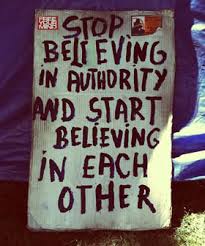I came across a Facebook post
linked to an article on timeouts and if they were
effective or "messing up kids."
The article made some great points (click the link above to read it in
full).
I specifically agree
with Edward Christophersen, a psychologist and pediatrician at Children’s
Mercy Hospital in Kansas City, Mo., and the author of Beyond Discipline: Parenting
That Lasts a Lifetime.
"Timeouts don’t work very
well, if you haven’t created a richly positive environment for your child. In other words, “it's the effort parents put
into time-in that determines whether or not timeout works,” Christophersen
says, so when parents and teachers categorically state that timeouts don’t work
with their kids, it can be a warning sign of more serious problems in the home
or school environment. If you rarely praise, hug, or interact positively with
little Sammy, then acting up may be the only way he can get your attention, and
for a kid, negative attention (such as when parents get mad) is better than no
attention.
Agree
100%.
As a parent, we feel
we have effectively incorporated timeouts for our almost-two-year-old son,
Elijah. However, we also VERY often praise, hug and kiss, and positively
interact with him. He does not feel 'punished' or 'abandoned' when we do
give him timeouts. What I have noticed is how INEFFECTIVE spanking is for
our son. While I know some parents are adamantly opposed to spanking, and
others are for it, I would be lying if I said we never lightly spanked Elijah's
bottom or hand, although it rarely happens. I was not exactly for
"spanking" but also grew up in a time where corporal punishment was
normal (especially in my ethno-traditional Indian upbringing). That being
said, I remember how much I HATED my parents for spanking me and told myself I
didn't want to parent this way. I did not want my son to hate me because
of the forms of punishment he received. I realize that some of the
techniques used on me did have negative consequences (i.e.: feeling hatred
toward the two people I should never feel hatred towards, my parents). Of
course, that time passed and I feel nothing but love and admiration for my
parents now that I am an adult and a parent myself. Nevertheless, I still remember that
"feeling" stemmed from the corporal punishment I received.
Thankfully, I
received a lot of training on early childhood education and parenting through
the agency I was previously employed with.
I feel I truly learned the benefits of "nurturing parenting"
principles stemmed around positive interaction, speaking to Elijah like an
adult, getting down to his level to speak to him (especially when a more
authoritative voice is needed) and always loving and praising him. This
approach has worked WONDERS for us. We do not feel like we are dealing
with "the terrible
two's" we hear so often
about. Our son is actually far from "terrible"
although he is just about two years old.
I strongly believe
that the nurturing parenting techniques, as well as effective and age
appropriate timeouts, work wonders. Elijah HATES time out (which for us
is removing him from his current surrounding to a quiet corner in the house).
We do not put him there and just "abandon" him. We get
down to his level, explain calmly what he did and why he is there and give him
a specified time limit. He usually throws a fit for a few seconds, but I
have noticed if I speak to him like an adult, he gets it more than if I were to
be frustrated and yell at him. In the end, he does not like the idea of
timeout, so often he knows what he should not do to end up in timeout. In his head, I see him thinking, "I shouldn't do that, or I'll
be in timeout." Which to me, speaks volumes in that he is
getting the concept and understanding the cause and effect around his behavior
resulting in a positive learning experience for him.
In the end, I am ALL
for nurturing parenting and effective, age appropriate time outs. Children need discipline and structure, but
they also need love, praise and nurturing.
What techniques do
you use when applying discipline to your child?
Has it been effective?
I strongly urge
parents to look into the "nurturing parenting" techniques and would
be happy to elaborate more about what I learned in regards to these principles.





0 comments:
Post a Comment